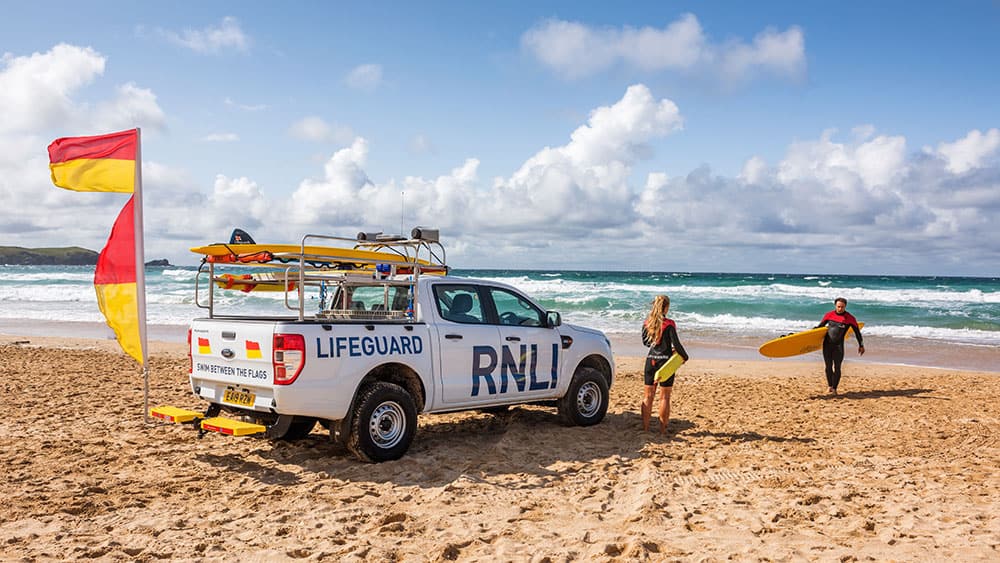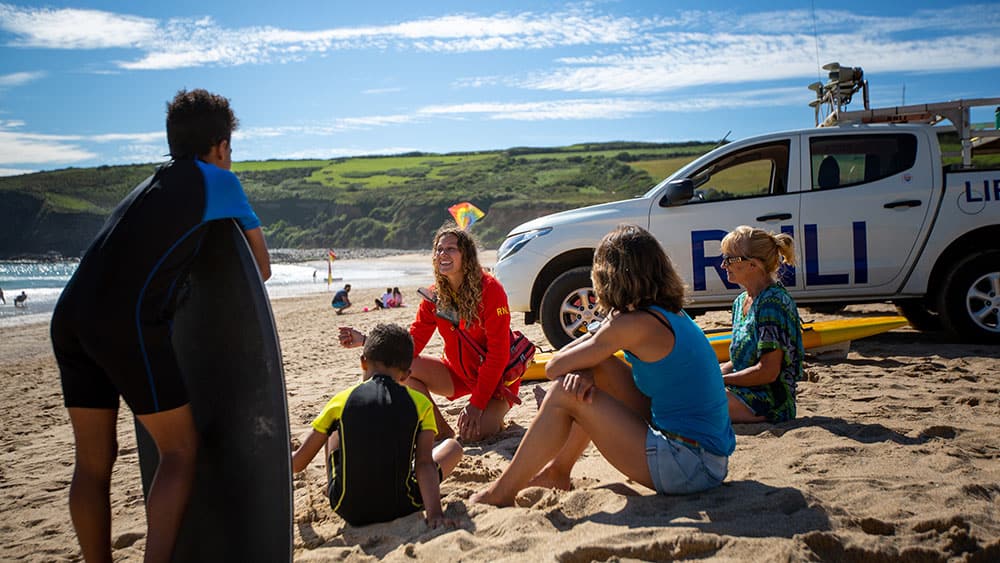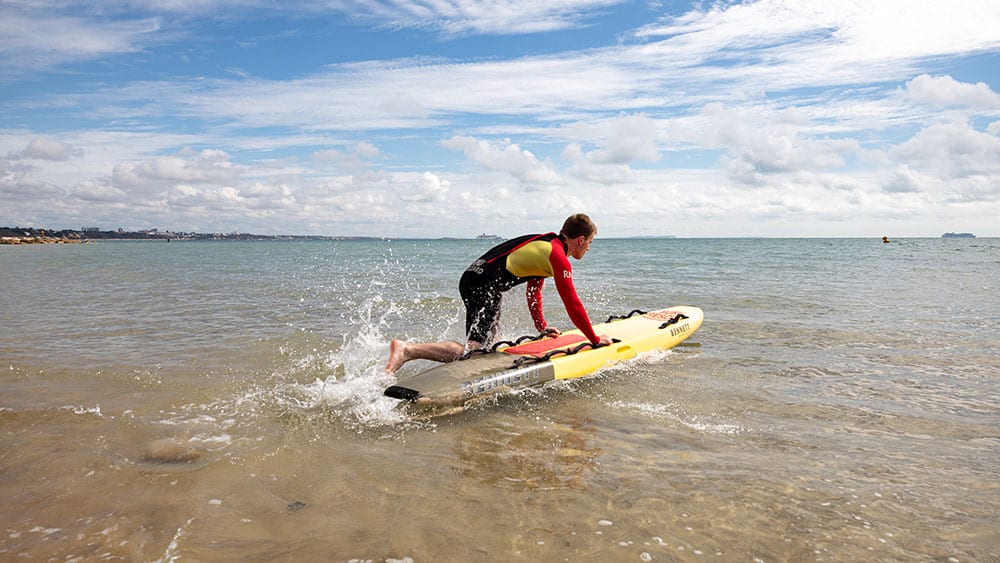RNLI’s Top Tips for Staying Safe this Summer
The RNLI (Royal National Lifeboat Institution) is the charity that saves lives at sea and promoting beach safety is part of the important work they do, so you can enjoy your well-deserved time at the coast and remember it for all the right reasons.
We asked the RNLI for their top tips on how to help keep you and your family safe at the beach and in the water during your holiday.
1. Swim Between the Flags
During the summer, RNLI lifeguards are operating on over 90 beaches across the South West. Specially trained in casualty care and water-rescue techniques, the charity’s lifeguards have a huge depth of local knowledge and safety information. Most of the work they do is about prevention, talking to the public and educating people on the possible dangers, to prevent them from happening in the first place.

If you plan on entering the water, always go between the red and yellow flags which is the safest area for swimming and bodyboarding. On busy summer days there can be lots of people in the sea at once, so by going between the red and yellow flags you give yourself the best chance of being noticed by the lifeguards if you get into trouble.
2. Float to Live
The RNLI use the Float to Live message when talking about all water safety, not just at the beach. If you ever find yourself in difficulty in the water, try and remember to float. Fight the urge to thrash around, which will quickly make you exhausted and instead, lie back and stretch out your arms and legs and regulate your breathing. If you can, always shout for help and try and get somebody’s attention. In the UK the temperature of the sea can still be cold even in the middle of summer on a hot day. Cold water shock can happen to anyone and can cause you to gasp uncontrollably, if you experience cold water shock follow the same safety advice and remember; float to live.

3. Rip Current Safety Advice
RNLI lifeguards deal with many incidents involving rip currents, and they are one of the biggest dangers on UK beaches. A rip is a strong current of water that moves out to sea, it can quickly drag people away from the shallows and out of their depth in a matter of seconds. Rip currents can reach speeds of up to 5mph, which is faster than an Olympic swimmer and they are especially powerful in larger surf conditions. But never underestimate the power of any water as rips can be found around river mouths, estuaries and man-made structures like piers and groynes. Rip currents can be difficult to spot, but are sometimes identified by a channel of churning, choppy water on the sea’s surface. Even the most experienced beachgoers can be caught out by rips, so don’t be afraid to ask lifeguards for advice. They will show you how you can identify and avoid rips. If you do find yourself caught in a rip current:
· Don’t try to swim against it or you’ll get exhausted.
· If you can stand, wade don’t swim.
· If you can, swim parallel to the shore until free of the rip and then head for shore.
· Always raise your hand and shout for help.
4. Check the Tide Times
It’s not just swimming and water sports where you have to be aware of the sea. Every year the RNLI responds to many incidents involving people getting caught out by the tide. Which can be an extremely dangerous and scary situation. The UK and Ireland have some of the biggest tidal ranges in the world and it’s important that you understand them to avoid getting cut-off. Tide times and heights vary throughout the month so make sure to check them before going out. You can find out more information about tides in your area via the local harbour office, online tide tables, apps, weather news or local websites, as well as from the RNLI lifeguards.

5. Call 999 and ask for the Coastguard
If you see someone in trouble in the water your instinct may be to go in after them. You should never enter the water and instead alert the lifeguards and call 999 or 112 and ask for the Coastguard. The Coastguard work alongside the RNLI and other specialist agencies to respond to any emergency on the coast. It is really important that you do not attempt to enter the water yourself, as this puts you directly in danger and may result in you getting into difficulty and needing to be rescued. RNLI volunteer lifeboat crews and lifeguards have specialist equipment and training to allow them to deal with emergency situations. If you are ever unsure if someone needs help, always make the call. The RNLI and Coastguard are always happy to respond to genuine concerns for people’s safety.
For more information on summer beach safety, visit www.rnli.org
